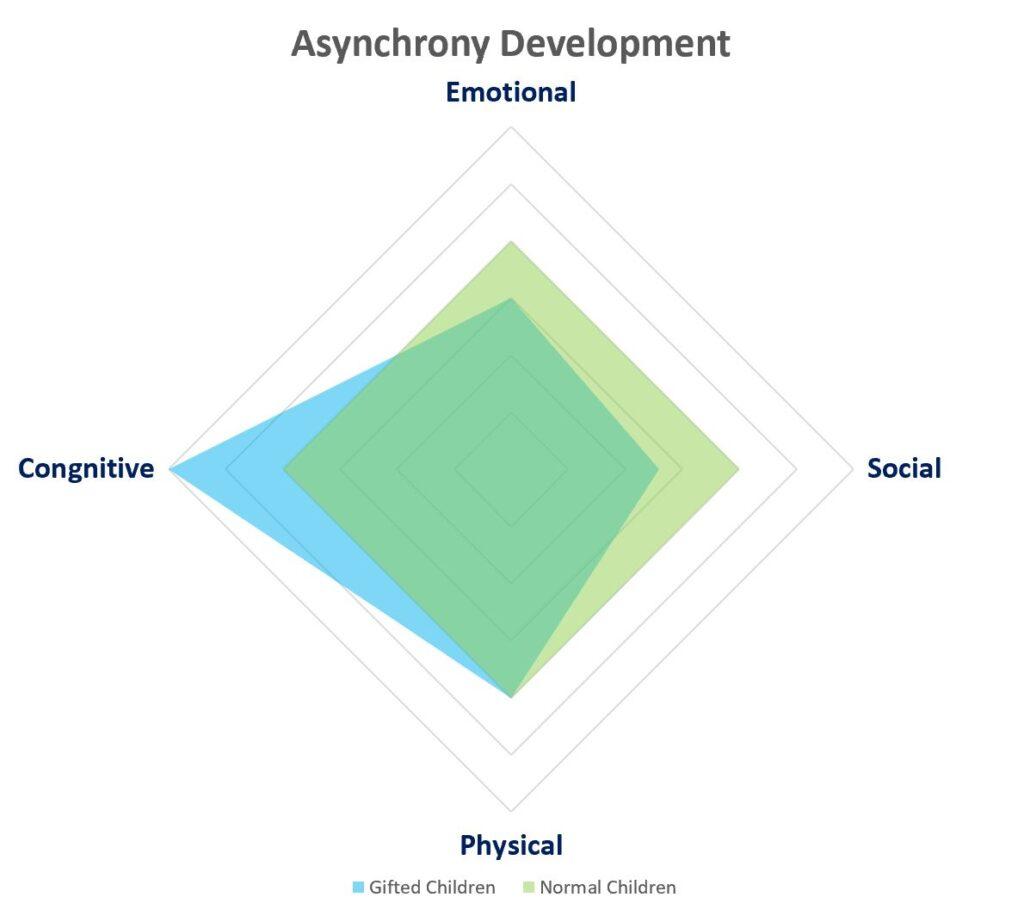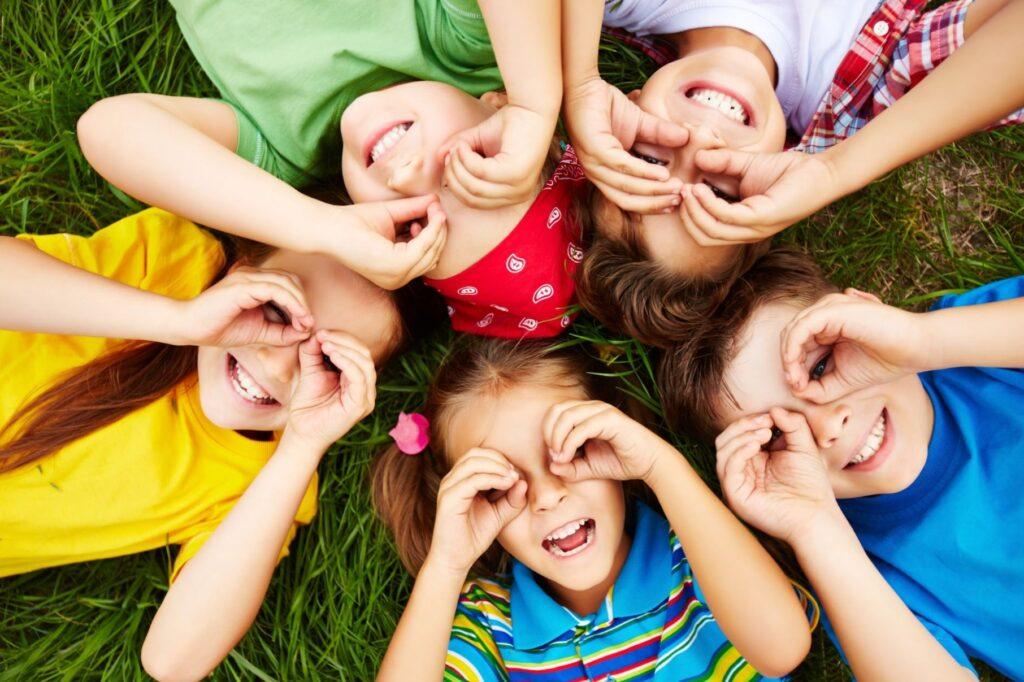When my daughter showed her musical, language, and mathematical talents at 3-year-old, her teacher and I were joking, “we are in trouble. It is not always a blessing”. By then, I knew it was a challenge but did not foresee so much challenge. Fast forward to today, she is 6 years old. Still, she happily plays music in the royal conservatory Den Haag, breaking her brother’s record as the youngest musician in the junior talent program. My son, who is 20 months older than her, is good in music and sports but has average academic performance. In this article, I will share the dilemmas, challenges, and pragmatic solutions to deal with gifted child and their sibling relationships in family.

Table of Contents
Starting Point – What is Gifted
Related Reading:
- 8 Type of Intelligence – Every Kid is Gifted
- 6 Signs For a Musically Gifted Kids
- 3 Criteria to Choose Extracurricular Activities For Young Schoolers
- 10 Best Extracurricular Activities For Young Schoolers
Gifted typically means a child shows significant ability above the norm for their age in the family. In our previous article, we introduced Gardner’s Theory of Multiple Intelligences. The book has categorized human intelligence into eight types: musical-rhythmic, visual-spatial, verbal-linguistic, logical-mathematical, bodily-kinesthetic, interpersonal, intrapersonal, and naturalistic. Each intelligence is equally valuable, and each has the potential to be nurtured and strengthened or ignored and weakened.
A gifted child does mean all-around talented; it is about high performance and requiring extra opportunities above their peer group in one or more aspects. Giftedness can be nurtured and developed when recognized and allowed to flourish.
Is My Child Gifted?
It is a one million question to all the parents. We often focus on our kids and subjectively magnify their behaviors on disabilities and giftedness. Our child could be just bright or gifted, and they can be misdiagnosed or mistreated in both family and school. My secret recipe is to:
- Encourage your kids to try as many activities as possible to find out what they like.
- Observe their learning process with a cold eye. Pretend they are not your child for 10 min. Then you will notice the outstanding behavior quickly.
- Explore them earnestly by challenging the limits. In other words, if your 2-year-old kid is displaying a particular insight in math, you can increase the difficulty to see how far the child can go.
- Moreover, always engage with the teacher and school to get feedback about your children and arrange tests if necessary.

Common Traits of Gifted Kids
Related Reading:
- 12 Things can Help Raise Kids with Diversity and Inclusion in Mind
- 8 Youngest Child Traits: Does Birth Order Matter?
- Room Parent Feedback – Parents Involvement in Primary School
1. The Bright Side of Giftedness
Here are also some common characteristics of gifted children. It just helps you to ring the bell of “this could be a gifted sign” while observing them.
- Excellent memory
- Self-teach reading and large vocabulary at the young age
- Intense curiosity by asking very passionate and astute questions
- Advanced comprehension, especially of nuance and abstract ideas
- Intense feelings and strong reactions
- Independent thinking
- Fantastic imagination (and often has an invisible friend)
- Likes to experiment and tries to do things differently
- Will learn basic skills quickly and often without much practice

2. The Uneven Development of Gifted Children
As stated on the bright side, gifted children are a bit stronger than their age level in certain aspects. For example, more active, curious, emotional, and dominant. In the meanwhile, their development is uneven. Dr. Linda Silverman has explained in her theory Asynchrony definition of giftedness: Giftedness can be a markedly uneven development experienced due to different development rates of cognitive, social, emotional, and physical growth. It also manifested externally due to a lack of fit with age mates and societal expectations.
Simply say, being gifted can be like an 8-year-old left brain plus a 3-year-old right brain in a 5-year-old body. What a twist! The more gifted child is, the more significant gap they will experience.

3. Overexcitabilities and Misdiagnosis
Kazimierz Dabrowski also describes that gifted children often have “overexcitability.” Overexcitability has five aspects that can cause misdiagnosing of kids.
| Overexcitability Type | Performance | Advocacy Need |
| Psychomotor | Need for physical activity. They may talk rapidly | High |
| Intellectual | Possess insatiable curiosity by asking questions | Low (teacher can quickly notice) |
| Sensual | Reactions to sensory stimuli such as taste or sound | High |
| Imaginative | A daydreamer with a vivid imagination | High |
| Emotional | Easily overwhelmed by emotions | High |
For example, a child with “intellectual overexcitability” is constantly hungry to feed his intellect, learn more, and broaden his mind. The child may express his natural curiosity by frequently interrupting class to ask appropriate or inappropriate questions. Based on the child’s behavior in class, an educator may conclude that they have a short attention span and, possibly, an attention deficit disorder.
With psychomotor excitability, the child will likely want to touch and play with as many toys as possible. When done in a formal setting, such as a classroom, it may appear that the child is having difficulty sitting still with everyone else. This is what leads to an ADHD misdiagnosis.
Similarly, “imaginational overexcitability” can lead to discussing outlandish scenarios and ideas. If the child begins to share his speculation about what might go wrong, people may start to suspect that the child is easily anxious.

4. Undiagnosed Disabilities
Gifted children may also have learning disabilities, but their giftedness could compensate for the disability in the early years. For example, a dyslexic child struggles to learn to read, spell, and write. If they happen to have powerful visual learning ability, they may know all of the words as sight words. In the early school years, it can be covered by talent. However, when extensive reading is required in school, visual learning ability cannot cover the reading challenges anymore. When every subject is dependent on the ability to read, it can quickly become overwhelming. Early intervention measures to improve the child’s reading and spelling abilities could have been implemented if the child is not gifted.
5. Social Skills
Related Reading:
- 8 Best Positive and Gentle Parenting Books for Toddlers’ Parents
- 10 Ways to Be an Upstanders in Bullying
- Prevent Kids from Bullying: A Complete Guide for Young Schoolers’ Parents (5 to 8 years)
Gifted children frequently struggle to make friends at school, resulting in isolation and bullying. Why does this happen? They think and experience life differently than the rest of their friends, making it more challenging to connect with others.
For example, a gifted young schooler may be frustrated by his classmates’ lack of interest in chemistry. When this occurs, the child will naturally seek out others who share his interests, only to discover that he is alone.
Other gifted students get along with their classmates by learning and not oversharing ideas and talents to attract unwanted attention. In other words, they can learn to cope with and thrive in social situations.
These gifted children may struggle to find true friends who understand their unique views or humor. Special-gifted schools, pull-out programs, and other alternative groupings help gifted students find peers with similar temperaments and abilities. However, there is a risk that if we lump all ostensibly gifted children together, they can struggle with the “real world” later on. Talented children must learn to navigate the world, finding space to fully develop their potential while also learning to live with most people.

Does Normal School Fit for Gifted Children?
Related Reading:
Clearly, the gifted child needs special attention at school. They need to adapt the behind skills and keep developing their talents. One fit for all educational environments may not help and can worsen things. While one might think that a child with a high IQ would naturally do well in school, this isn’t always the case.
For example, a gifted child may only need to learn the grammar or mathematics rule once and immediately grasp the concept. Instead of weeks of practice to learn something, gifted children can learn in seconds. When gifted children find the lessons too easy or uninteresting, they can react in various ways. Some children may be distracted, while others may bother the teacher. Furthermore, some may refuse to do the work or speak to others because they believe other children are beneath them.
The teacher may then misinterpret this behavior and conclude that the child does not understand the material and requires remedial assistance. Worse, the teacher may believe that the child is misbehaving on purpose and impose punishment or mistake giftedness for ADD or ADHD.
Despite a lack of precise statistics, the University of Connecticut reports that some gifted students eventually drop out of school. This is a sad situation in which a gifted child does not reach his or her full potential due to a mismatch in the learning environment.

Parenting Gifted Children to Succeed in Life – A customized design of balance
Parenting gifted children entails much more than assisting them in achieving academic and intellectual excellence. You will prepare them for overall life success by encouraging their unique gifts and talents while cultivating social and emotional development, which are common challenges for gifted children. Knowing the characteristics of gifted children is essential for the successful parenting of gifted children. It is all about balance.
- The balance between intellectual and overall development: You can provide numerous opportunities for stimulating, exploring, and developing gifted kids by taking them to extra curriculum, museums, or laboratories. Meanwhile, also support their social, emotional, and physical development by helping them to find friends with shared abilities and interests, read books, create alone time, etc.
- The balance between pushing and protecting: Parents are frequently ecstatic about their gifted child’s abilities. They are proud of their child and want to help them be the best they can be, pushing them to do more, be more, and excel faster. Other parents want to let their children be kids without putting too much pressure on them, shielding them from external burdens and stress. Finding the happy line between these two extremes is critical. Instead of pushing or protecting, consider encouraging by listening, asking questions, and taking them to libraries, museums, and other places of interest.
- Balance your expectations with age and emotional level. They are still children and can have confusion, anger, crying, resistance, and more. Instead of stopping negative actions, try using discipline that motivates positive action. For effort, use praise, natural consequences, and positive reinforcement.
- Balance your child to be themselves while helping them learn to fit in with peers. All children, including gifted children, need to develop a strong sense of self, knowing and accepting who they are apart from others. Children must balance this with meaningful connections with their peers to feel welcomed and belong. Encourage your children to explore their strengths and weakness, advocate for themselves, debate their interests, and generally develop their talents and interests while arranging opportunities for them to play with kids their age. Expose the child to books featuring characters with whom they can identify.
Sibling Relationships
Related Reading:
- What Should Parents Do? A Story about Kids Lie and Sibling Fight
- What to Do When Family Members Hurt You
- The Difference between Bribe and Reward your Kids
- 10 Best Parenting Tips To Follow
- 10 Fun Sibling Games To Heal Sibling Rivalry
I fully understand that every kid is unique and has their shining point. As parents, we should not compare them; this is the ideal situation. I have spoken with many parents who compare consciously or unconsciously. Not only the parents, but kids themselves, are also comparing, especially when they have a small age gap. Sibling competition will occur in all families to some degree. A little competition is good, and a lot is often harmful. If you have more gifted children, things can be complex.

1) Talking about the giftedness
When discussing giftedness at home, use the word carefully. The term “gifted” can make their siblings feel jealous, competitive, or undervalued. Instead, you could give the whole picture and explain the pros and cons of giftedness. Ask each other to draw a self-portrait and describe their strength and weakness. They can map each other’s talent and try to laugh about it. You can say, ‘Sandy has the type of brain that enjoys learning new things in music and math. In other aspects, she may need extra help.’
2) Do not label your children
It’s important to avoid labeling your gifted child as the “clever one,” “artistic one,” or “special one.” The talented natural abilities are only one aspect of the child. Labels like this may make your other children feel inferior to your gifted child. They may also make your child believe they are unique because of their gifts rather than all their other unique and lovable qualities.
3) Treat every child unique
While you are devoting a significant amount of time and attention to support the gifted children, such as driving them to music lessons or sports practice, the other children will notice the special attention and will grow to resent the child. You also need to ensure that each child receives their unique time and attention.
Teach your children that “fair” does not always mean “the same.” For example, if one gets a pair of new football shoes, it does not mean the other need to get the same shoes if he does not play football.
Moreover, do not allow one child to be more fortunate than the other. For example, don’t make one child do the dishes or feed the dog just so the other can practice the cello.
4) Help siblings to get along with each other
Related Reading:
- Make a Creative Family Tree Together with Kids
- 15 Creative Family Photo Ideas
- 25 Fun Family Games To Play Together with Kids
- What to Do When Family Members Hurt You
- 11 Tips for a Meaningful Summer Holiday for Both Kids and Teens
- 10 Best Family Movies for 7 Year Old
- 10 Reasons for Kids to Have Pet
- 7 Old-fashioned Discipline Techniques You Should Avoid At All (on primary school kids)
Rather than anticipating conflicts between your children, expect they will get along and like one another. Take pleasure in their nurturing and appreciation for one another, and treat chronic fighting as misbehavior if it occurs.
Make time for companionship, hugs, playtime, and alone time with your children. They should not have to compete for your time, love, or respect. If you have to drive one of them to lessons, use the time spent waiting with the other child to go to a nearby park or library to practice ball skills or read a book. Do not let the more verbal child dominate the dinner table conversation.
5) Focus on effort and challenge rather than level and outcome
Help siblings understand and appreciate the effort each takes to work toward a goal, assignment, or personal challenge. Understand how discouraging it is if one of your children is struggling with schoolwork. Please show your support by sitting near them while they do homework and assisting with the organization. Read aloud a unique book just for the two of you every night.
6) Accept every child who they are
The parents’ unconditional love and acceptance are contagious. Other family members will often follow when you demonstrate understanding, acceptance, and respect for who and where your child is.
Children can be unkind, and they can be especially unkind to those closest to them. In the family rules, teasing and whispering shall be prohibited. As our children are mature, they generally leave only a certain amount of their “quirkiness” behind; much of it is carried forward, adding dimension to the unique adult individuals they become.

Final Thoughts from Pragmatic Lifestyle
Giftedness requires extraordinary care to blossom fully. Despite all the problems gifted children face, they are also often delightful to be around and can shine in the right environment.
Giftedness is only a curse when so much pressure is put on the child (or adult) without strong and loving support. Many child prodigies, such as Mozart, have been pushed to the limit and led to death at a young age. On the other hand, many other children can run a wonderful career happily with loving support.
Parenting gifted children to succeed in life entails taking into account their characteristics and creating opportunities to spend quality time together—sometimes exploring interests related to gifts and talents, but other times are simply playing. Stimulate them, accept all aspects of them, and assist them in determining how they want to use their abilities as they grow.
About me
Hi, there. I am Lin. Together with my husband and two kids, we live in the beautiful Netherlands in Europe. I am dedicated to self-development, creating quality time for the whole family, and fully supporting kids with their potentials and possibilities with all I have learned from engineering, MBA, and 10+ years of working experience in the energy sector.



1 Comment
Comments are closed.